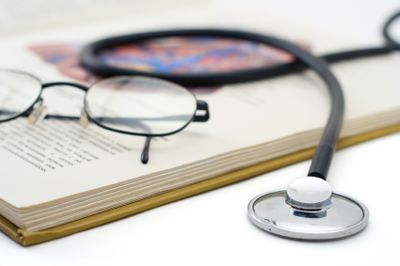
Source: careers.queensu.ca
Becoming a medical student can be a daunting prospect; university is a very different environment to school, with unique opportunities and challenges. As every doctor knows, as much as that period of time being a medical student is a great chapter one’s in life, we have all had moments that were uncomfortable or downright embarrassing. First experiences in the wards can be intimidating, particularly when you do not know the etiquettes or what to expect. In addition, when you are old and cynical—about six months into foundation training—then you’ll look back on to those days as a golden age that you did not properly appreciate or make the most of, and you will wish you had known certain things at the time. Throughout these 4 years of medical school, I began to realize that I should be knowing what a medical student really live through, in the first place. It is not only involving our efforts of becoming one, but also other factors that really build me up all these while. So, students, what can you tell about this field to others? What do you know about being a medical student?
It’s hard work, but sometimes it’s not only work
Studying medicine comes with a certain expectation to work harder than most other students. There are generally more contact hours than other subjects with practical and lectures taking up a great deal of time. Of course it is not just the contact hours when you are working: lecture notes need to be read over, essays have to be written, practical should be prepared for and keeping on top of it all can be a challenge. Your work load will vary from week to week, sometimes being set a great deal of work and sometimes having a whole week with very little to do. Therefore it is important to be flexible with how you work and appreciate that sometimes you will have to put in a long stint of work in order to have the time off when you need it. There is also a reasonable amount of pressure on to pass exams. In most subjects other than medicine what you are really studying and aiming for is the best grade possible. By being passed in all exams you are essentially being certified as competent enough in a subject area to continue towards a professional medical career. Passing these exams can often require cramming a great deal of knowledge in a small space of time and this can be stressful, but the reward after exams is a long summer to enjoy. Medicine can be challenging, but do not panic, you will still have plenty of time to enjoy being an undergraduate, an experience that many people say is the best time of their lives. The level of work in the course is such that you will have time to make the most out of other activities at university, such as sports, music and the huge range of other societies that are available at university. All that you need to do in order to manage these other activities is to be efficient with the time you spend working; do not spend a whole afternoon watching YouTube videos if you know you have a music rehearsal that evening. University is about more than just simply gaining a degree, you will learn a lot about yourself and other people and hopefully build yourself into someone who is capable of being a good doctor.
Being a medical student is not all about studying medicine
All these activities that you can do in your spare time are not just about having fun. Even if it takes your mind off work, they are actually very important in your “personal development”. This is, as mentioned above, working on skills that are outside the scope of academic study but are still vital to being an effective doctor. For example, by taking part in music or theatre you will become accustomed to performing in front of a large crowd of people and as a consequence if you ever have to present at a conference or even to a team of your colleagues, you will be able to stand up with confidence and say what you need to. Equally, playing in a sports team will help you function with other people, some of whom you may have a personality clash with or strongly differ in opinions. You become used to a position of responsibility, with other people relying on you to perform your role, sometimes under pressure. Medicine is a career in which it is vital to emerge from university as a functional person who is capable of interacting well with others. This will not be achieved by sitting in your room every evening and studying the lecture notes: there is an important balance to be struck between working and having a life.
Studying anatomy involves more than looking at pictures
Anatomy can be rather full-on, especially at traditional institutions such as Cambridge, where throughout the course of your first year you dissect a “subject” who has decided to donate their body to be used for training medical students. This means getting involved with a scalpel yourself and doing what can occasionally be a rather unpleasant task. Some people might be really excited by the idea of getting stuck in and having a really practical course in anatomy, but for those who do not, you shouldn’t panic. Most other universities use only pre-prepared dissections (prosections), which you will still have to learn the structures of and examine, without necessarily getting your hands dirty.
You will be able to use what you learn for the rest of your life
This might seem like a fairly trivial point, but it should not be overlooked. The truth for many courses is that you are only really studying in order to pass your exams and once you have managed this information which you have tried so hard to learn is largely useless to you. This is very much not the situation in medicine, with areas including anatomy, physiology, biochemistry, pharmacology and pathology all being directly applicable in diagnosing, understanding and treating a disease. Not only is this a great incentive to learn the core course material well, in order that you will be a competent doctor, it is also an incentive to go beyond the basic lecture material and satisfy your curiosity about what you have been taught. This extra detail could one day be put into practice in a clinical situation and could make a crucial difference to a patient. When you are studying medicine you are not just studying for the next exam but taking the first steps on a course of lifelong learning, building your basis of professional knowledge throughout your medical career.
You will make close friends while studying medicine
Make sure you take the time to make the most of the people you are at university with. They do not necessarily have to be medics; many people become very close with people in their sports team or society, but medical students do seem to end up hanging around together. Unfortunately this can sometimes lead to slightly geeky “medic chat” where before you know what is happening you end up discussing what happened in the morning’s lectures, or how you found last week’s practical. This can be a good way to remind yourself what happened in the lecture earlier (no one can concentrate all the way through a full one hour lecture), but sometimes it is just light-hearted discussion about which lecturer makes it very hard to stay awake!
You have a vacation, not a holiday
If you have managed your work very well during term time and stayed on top of everything there is no reason why you can’t enjoy a well-earned rest for a few weeks. If, however, you prefer to do as many activities as you can while in residence the vacations can be an important opportunity to pay back the time you borrowed during the term. Most importantly, it is about finding a balance. You do not want to start the term feeling fatigued from working too hard over the holidays, but equally you don’t want to start the term not having a clue what is going on.

Source: careers.queensu.ca
If you pass your exams you’ll become a doctor
Bar any kind of disaster, if you pass all your exams while studying medicine you will go on to become a doctor. This may well seem like stating the obvious, but it’s worth taking a step back and thinking about this. By passing you in an exam a university is certifying that you are competent enough in that subject area to continue on the path to becoming a doctor. What does this mean for you? First of all it means that it can be quite difficult to pass your exams. In other subjects you are certified as competent by scoring a decent grade, however in medicine if you pass you will be guaranteed to continue down the path of clinical school and continue on to a professional medical career. While there is the drawback of having an especially tough time passing exams this is also a very exciting prospect. If you manage to continue at a reasonable level, putting enough work in, you will qualify as a doctor. If things get tough and you think you might struggle to pass just remember that by passing you are taking one step more towards being a doctor.
Most of your peers will be very intelligent
Medical students represent an extremely limited selection of people your age and they will tend to be both very capable and hard working. This can sometimes result in you feeling rather demoralised when comparing yourself to others, especially as you will tend to notice the ones working harder than you more than the rest. Remember, the people you are comparing yourself to represent the very top fraction of students in the country and as such you should not be disheartened if some of them are better than you. In fact there will be plenty of other medical students at the same level as you who are making the most out of university to develop themselves as a person, not just as a student. Being a medical student puts you in a very privileged position, among the very top students across the country. It generally seems to be that students follow the mantra “work hard, play hard”. Most importantly, remember that being a student is not only asa means to an end, but an end in itself. Make sure you make the most of being an undergraduate!
D’Dyanna Lajamin is a 4th year Sabahan medical student currently studying in Kursk State Medical University, Russia. Know more about her under the Young Columnist tab.
References:
- http://forumed.sante-dz.org/archive/index.php?t-15572.html
- http://www.cornellmedicine.com/education/medical_student_education/index.html
- http://medicine.med.nyu.edu/nephrology/education
